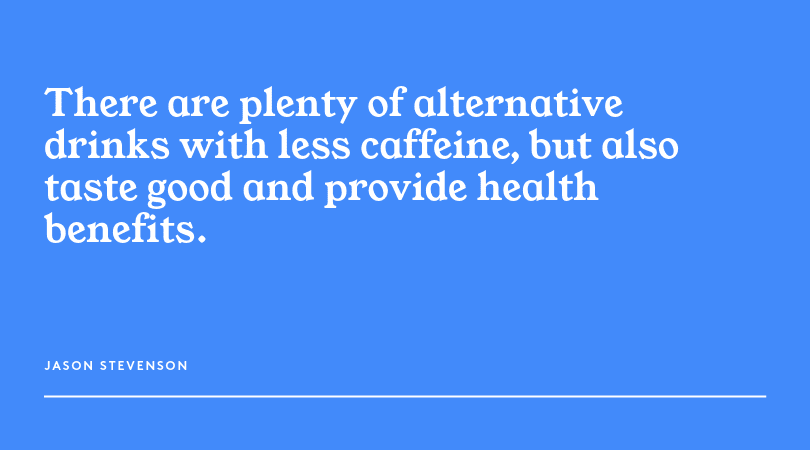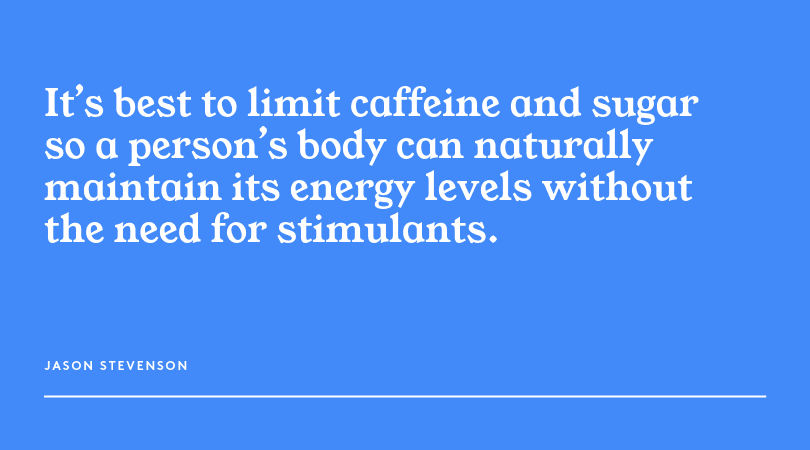Drinking Caffeine the Right Way
By Jason Stevenson, Regional Clinical Nutrition Manager and Board-Certified Sports Dietitian with the University of Miami Health System
Caffeine is an unusual, complex drug. Because it can improve athletic performance, I’ve recommended it to elite athletes in a variety of sports – tennis players, cyclists, triathletes and female bodybuilders. I’ve also trained emergency medical technicians flying at high altitudes during their rescue of US special operations forces injured in combat. Teaching them to keep their consumption of caffeine and alcohol low helped them avoid dehydration in these important operations.
But most everyone knows caffeine has a downside, too. I know first-hand that it’s addictive and too much can cause high blood pressure and other health issues. A few years ago, I was drinking far too much coffee – 4-5 cups each day. And I’ve watched athletes perform below their peak levels because they drank too much caffeine. One triathlete was hindered because his daily caffeine use cut his aerobic capacity, causing him to run slower instead of helping him.
We should all limit our consumption to less than 200 milligrams – in effect, 1-2 cups daily. For Starbucks customers, that’s one “tall” coffee, or 12 ounces. The good news is that there are plenty of alternative drinks with less caffeine, but also taste good and provide health benefits.

Caffeine’s Benefits – How to Drink Responsibly
In addition to supporting 23 Morrison accounts and serving as Director of Patient Systems at the University of Miami Health System, I also work with athletes to improve their performance through nutrition and exercise. Managing their caffeine intake is often part of the training plan.
While I don’t recommend daily caffeine consumption for most of my clients, there is a strategy that can safely boost an athlete’s performance. For example, a runner should begin to use caffeine near the end of their training period leading up to a race. Assuming an athlete is training for eight weeks, they should begin to one hour before each training session starting ten days before their race to improve their performance. This biggest improvement in performance will occur with athletes that otherwise don’t drink coffee or consume caffeine.
I’ve worked with a marathon runner that consumed a sports drink just before he trained in the morning. In the afternoon, he’d grab a coffee to help get him through the day. During his off-season, I helped revise his nutrition plan, which meant significantly less caffeine. A week before his race, we gradually increased his caffeine intake, and his pace improved – “minutes per mile” — as well as perceived ability to finish it through without struggling.
Many players in the National Basketball Association are also drinking coffee to get an added boost of energy. The players say their heavy travel schedule wears them down and saps their energy. Here is a story from ESPN.com on how the sports performance specialist for the Portland Trail Blazers prepares coffee for the players before road games.
What About Me?
I still drink coffee just about every day – though I’ve significantly reduced my consumption. I prefer the taste from a bean provided by a local café in Fort Lauderdale, rather than its potency. I typically make a flat white in the morning about an hour before I exercise.
But everyone needs to be wary of other caffeine-laced drinks, too. Energy drinks, for example, are high in caffeine and refined sugars. It’s best to limit caffeine and sugar so a person’s body can naturally maintain its energy levels without the need for stimulants. Everyone should limit the amount of refined sugar in their nutrition plan; it should account for no more than 10 percent of total calories consumed. Otherwise, too much refined sugar may lead to weight gain, diabetes, heart disease and energy crashes.

The good news is that there are plenty of alternative drinks with less caffeine, but also taste good and provide health benefits. If the amount of coffee or energy drink consumption is too high, try the following alternatives:
Tea
Teas are available in naturally decaffeinated and caffeinated varieties and even black tea doesn’t provide as much caffeine as an average cup of coffee. Ginger tea can help ease an upset stomach. Peppermint tea is known to help calm acid reflux. And green tea’s antioxidants promote brain health, may lower cancer risk, and help support efforts to lose weight. If you need a touch of sweetness, find a blend of sugar-free tea leaves that contain natural flavors and aromas (like passion fruit or chai) to help eliminate the desire for added sugars.”
Matcha Green Tea
Matcha is a bright green powder that delivers approximately one-third of the caffeine of coffee after steeped in water. Its naturally occurring L-theanine amino acid works with caffeine to allow a slower release of the stimulant a person doesn’t experience energy spikes and crashes.
Theanine may help regulate the increases in blood pressure and anxiety associated with caffeine. By steadying the body’s metabolism of caffeine, theanine may promote calmness, help reduce mental and physical stress and improve cognitive performance.”
Teeccino
Teeccino is a popular brand of roasted herbs made from chicory root, barley, carob, and other naturally decaffeinated ingredients. You can brew it like coffee or steep it like tea. It is available in flavors that remind you of coffee, too, like hazelnut and chai, but does not contain caffeine.
Kombucha
Kombucha is a type of yeast that’s fermented with tea, a bit of sugar and other ingredients to make a fizzy and often tangy beverage. It’s a low-sugar alternative to carbonated energy drinks and some research claims it’s good for the gut and regulating bowel movements.
If you are able to limit your daily coffee intake, there likely isn’t a need to make any changes. But for those looking to reduce caffeine and refined sugar – either from coffee or energy drinks – make certain it delivers less refined sugar and caffeine without adding sodium or potassium.
Join the Morrison Family
Morrison is a Compass One Healthcare operating division within Compass Group and has more than 1,200 registered dietitians, 300 executive chefs, and 20,000 professional food service team members. Apply for team member or management positions in one of the best companies to work for today.





